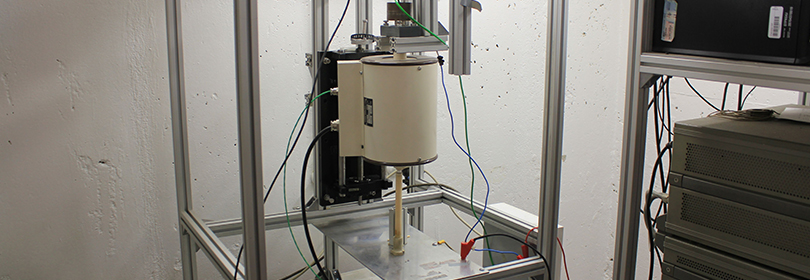Marlu César Steil: Platform manager
Jonathan Deseure : Scientific Associate
Franck Fournet-Fayard: Instrumentation technician
Camille Jourdin : Elaboration assistant engineer
Contact for all requests for information, services
contact.m2e@lepmi.grenoble-inp.fr
The Electrochemical Materials for Energy (M2E) platform is a technical and scientific centre of excellence dedicated to the development and characterisation of ceramic materials for high-temperature electrochemical systems (SOFC fuel cells, electrolysis, mixed conductive membranes), as well as to the development of composite electrodes and membrane-electrode assemblies (MEAs) and their characterisation for low-temperature systems (PEMFC fuel cells and PEMWE electrolysers, and their alkaline equivalents) Because of its specificity, which is quite unique in France, it provides a service open to the national territory but also to other countries, while providing technical and collaborative support to LEPMI.
The activities of the M2E platform are based on two axes
- Shaping and characterisation of ionic conductive ceramics and their applications in HT electrochemical devices:
SOFC fuel cells, ceramic oxygen generators (COG), mixed conductive membranes for oxygen transport (OTM) and oxygen and hydrogen sensors.
In addition, we are developing a new process for sintering ceramics by applying an electric current through the sample, called "flash sintering", which is applied to the production of multimaterials, for example for all-solid-state batteries. These activities interact with the activities of the MIEL team at LEPMI.
The assemblies and equipment dedicated to cell tests are grouped together in the "high temperature hydrogen room". In a more technical domain, the platform's skills are mainly focused on the development of original test benches for the electrochemical characterisation of materials and complete cells at high temperature and in a controlled atmosphere. - Development and characterisation of electrodes and Membrane-Electrode Assemblies (MEAs) for low temperature systems:
The main objective of this axis is to evaluate the components produced by the laboratory in a complete cell: shaping (membranes, electrodes, membrane-electrode assemblies) of materials (ionomers, electrocatalysts) for their application in a fuel cell system or low-temperature electrolyser. This area involves the three LEPMI teams (EIP, GUIDE and MIEL), on the themes of polymer electrolytes, electrocatalysts and cell tests under controlled temperature and hygrometry.



